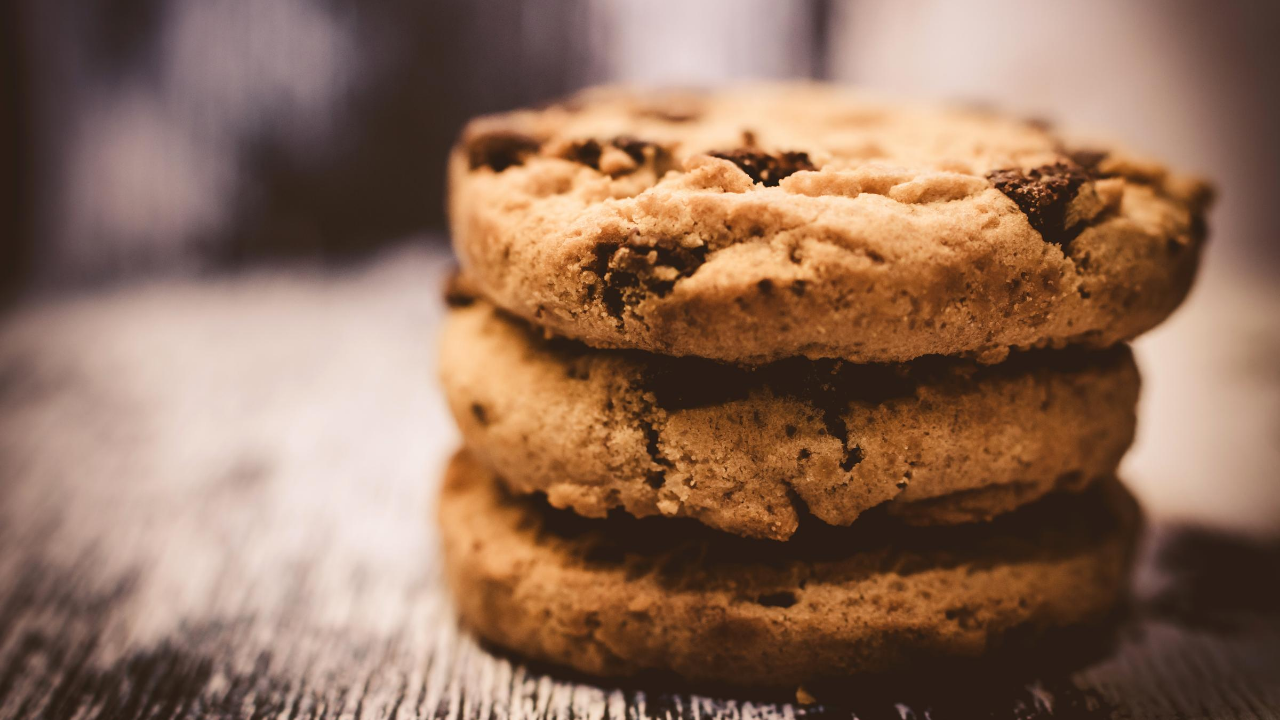It's the People Who Follow the Program Who Get The Results...

The Gap
Knowing what to do is only part of the solution when it comes to making healthy choices. Do you ever feel like you know what you're supposed to be doing, but find it's just really hard to stick to your plan? Rest assured, you are not alone.
For almost all of us, there is a gap between what we know we should do and what we actually do. Closing this "brain-behavior gap" is crucial for making progress with your health.
It's hard to stay with the program
Let me tell you about a interesting study that compared 4 different weight loss plans. The researchers looked at how much weight people lost on 4 different plans - Atkins, Zone, Weight Watchers, and Ornish - and the results were not super impressive. Each group lost about 5 pounds after one year.
But they did something really interesting in this study. Every month, they asked people, "On a scale of 1 to 10, how well did you follow the program?" You can see those results below. You'll notice each group started at...
Effective Stress Relief

The burden we all carry
An ailing parent. A struggling child. Jobs lost. Unexpected bills. Frustrating relatives and coworkers. Everyone has to deal with stress in some fashion, and at times it can seem like the bad news is piling up. This is especially true in our current time, with the added issues created by COVID-19 - social distancing, travel restrictions, and economic uncertainty - piled on top of all the usual stresses.
In her book The Willpower Instinct, Dr. Kelly McGonigal describes data from the American Psychological Association (APA) describing ineffective and effective stress reduction strategies.
Ineffective stress relief
According APA, the actions people most commonly turn to for stress relief were also rated as highly ineffective at actually producing the desired result - a reduction in the feelings of stress. These strategies include:
- Eating
- Drinking
- Shopping
- Watching TV
- Surfing the web
- Playing video games
Each of these is thought to activate the brain's reward...
Three Things - 3 Food Categories to Watch

Ahhh, the aroma
I come home from a day in clinic, and as I open the door from the garage I can tell there are cookies waiting in the kitchen. My wife and my daughter both love to bake, and during the pandemic they've both spent more time in the kitchen honing their craft. So on this day, I'm greeted by oatmeal raisin cookies, my personal favorite.
From the onset of social distancing in March, it didn't take long to figure out that having cookies on the counter all the time was not going to be a brilliant strategy for my health. Even when I might not be thinking I'm hungry, the sight of these treats is very hard for me to resist.
Not wanting to be a downer for my family, experimenting let me discover that as long as the cookies moved out of direct view (into the freezer is great), I greatly increase the odds that I won't succumb to temptation.
We are creatures of our environment
One of the lessons from the Blue Zones is that in healthy cultures, the environment "nudges" people toward...
What is Good Health For?

What is it for?
Not too long ago I listened to a talk by Seth Godin titled "Stop Stealing Dreams" in which he discussed the educational system. The thesis of the talk was that we need to ask a very important question about education, yet we really don't ever do so.
The question is "What is school for?" Is school designed to create compliant, obedient workers for the factory? It may have been in the early 1900's. Is school designed to teach us how to memorize well? This is probably not a critical skill in the Google era. Perhaps school should teach people how to creatively take concepts and ideas and bring them together in new ways to help our culture? That is starting to sound good. You might come up with different answers, but if school is to serve its function, we should ask "What is it for?"
What is good health for?
I've been thinking about this in relation to health. What is good health for? Most people want good health, but why? What is it for? What does having good...
The Formula for Success

Changing behavior can be hard
It can be really hard to change habits and routines, to live healthier lifestyle. Whether this means you don't exercise as much as you should, or you succumb to late night snacking, or you just can't seem to turn off Netflix and get to bed in time to give yourself a good night's sleep, know that we all have areas where improvement is theoretically possible but in practice quite difficult.
Personally, I've come to believe that our culture and our psychology work against us to thwart our very good intentions. We usually try overpower these forces with willpower, which unfortunately is a limited resource and usually runs out before we want it to. A better approach is needed.
If you ponder where you are having difficulty getting traction, my belief is that a few patterns will predominate. Personally I'm a bit addicted to exercise, so I have no problem getting in a workout even if it means I have to get up at 4 am to go for a run before my...
Set Your Intention, Receive Good Health

Atomic Habits
In his book Atomic Habits writer James Clear describes a study where researchers wanted to help 248 adults build better exercise habits. They divided the subjects into 3 groups. The first group was asked to track how often they exercised. The second group, the "motivation group," was asked to track exercise and also to read material about the benefits of exercise. The third group tracked and read motivational material, but also was asked to formulate a plan. Specifically they were asked to complete the following sentence: During the next week I will partake in at least 20 minutes of vigorous exercise on [DAY] at [TIME] in [PLACE].
Compared to the first two groups, where 35-38% of the subjects exercised at least once per week, in the group that completed the plan, 91% of people exercised at least once per week, more than twice rate of the other 2 groups.
Implementation Intention
The sentence the subjects completed is known as an implementation intention, a...
The Messy Middle

A Common Pattern
You start a new health program, full of enthusiasm and excited for the change it will bring. The first days and weeks go well, you are making all the right steps, and you see early signs of progress. You've been exercising for a week and feel a bit stronger or more energetic. You've stuck to your nutrition plan and have lost 7 pounds. So far so good.
But then something shifts. It starts to get harder. Maybe you don't feel like getting up early to exercise. Maybe you really want to order the cheesecake for dessert. Maybe you don't want to go to bed early, you'd rather finish binge-watching the latest Netflix show you are plowing through. Before you know it, you find your progress has stopped or maybe you've even lost ground. You start asking yourself, "Is this even worth it? Why am I even trying?"
Welcome to the messy middle.
The Messy Middle
The messy middle is that part of the journey where excitement and enthusiasm have worn off but the "new way" has not become...
There Are No Shortcuts to Good Nutrition

When I was in medical school and learning how to perform basic tasks, like reading an ECG or a chest x-ray, I was taught very specific protocols for each process. For example, reading an ECG was RRABEIIM - rate, rhythm, axis, bundles, enlargements, intervals, ischemia, morphology. The goal was to make sure nothing was missed, nothing was inadvertently overlooked.
In other words, taking shortcuts - such as jumping to the evidence of a heart attack occurring - might mean missing a long QT interval, which could lead to serious problems if medication choice did not take this into account.
Pilots, auto mechanics, chefs, and in fact almost every profession uses checklists or SOP's in some form to make sure a vital process does not get short-circuited.
Supplements - Do They Work?
I have to admit, it seems logical to assume that if a substance is found to have health benefit in nature, it should have similar benefit if taken in the form of a supplement. But is this true?
It turns out...
What can Daisy teach us about our health?

This is Daisy. She's our "pandemic dog." You know, since the world is turning upside down, why not throw a new creature into the household mix?
The Transition
She came to join our family a month ago, a one-year-old rescue from Texas, and when she arrived she was incredibly timid. She wouldn't come within about 6 feet of me without lots of coaxing (and food bribes), and she spent most of her time hiding under our bed.
Now that she's been with us for a month, she's starting to show a lot of personality, and there are lots of ways she brings me joy. I love how excited she gets for her food every morning, leaping about and quivering with excitement - it's like Christmas morning with a toddler every day! She likes to hoard toys. She'll find systematically take one item at a time to her bed until she's sitting on a pile of 8-10 bones, balls, and other assorted toys. When she's in a mellow mood, she'll follow me around and just rest peacefully nearby wherever I might...
Reversing Type 2 Diabetes is Possible - Results From the DiRECT Trial

I've noticed something interesting. When someone is diagnosed with type 2 diabetes, the doctor thinks about controlling risk factors. Control the blood sugar. Control the blood pressure. Control the cholesterol. All of this to reduce the risk of developing problems related to diabetes.
Most people when diagnosed, however, think about reversing diabetes. Make it go away. Get off medications. Punch diabetes in the face so it never comes back.
Unfortunately studies and experience have not suggested that people are likely to make and sustain the changes needed to reverse type 2 diabetes.
But could diabetes reversal be possible?
The "Twin Cycle" Hypothesis
Dr. Roy Taylor from Newcastle, UK, developed an interesting hypothesis about the cause for diabetes which gives hope that it can be reversed commonly, especially within the first 4-6 years after diagnosis. He published about the twin cycle hypothesis in 2012 after performing preliminary studies showing support for the idea.
Basically,...